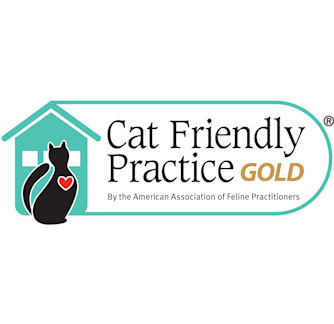Caring for Senior Pets
Senior Pet Health

Improved preventive care by pet owners, developed veterinary care, diagnostic tools, and dietary habits are helping our pets live longer and healthier lives. As a result of these extended lifespans, pet owners and veterinarians are faced with new sets of age-related conditions. It’s not uncommon for cats to reach upwards of 15 years of age and for dogs to live in excess of 12 years. By the time our pets reach 7 years of age, they are around 50 in human years!
What senior pet health problems should I know about?
Our pets can suffer from the same age-related ailments as we humans do. This includes weight gain, joint/muscle disease, diabetes, senility concerns, heart disease, and decreased function of the liver and kidneys. It’s important to remember that as our pets age, their nutritional and medical needs change. In order to help prevent these conditions, we must change the way we approach our pets’ health care.
What can I do to help my aging pet?
Preventive medicine is the best way to help our pets. Certain breeds of cats and dogs are pre-disposed to specific health conditions; by maintaining an ongoing relationship with us, your veterinarian, we can better advise you on the best time to start certain supplements to help prevent or delay these conditions.
Simply bringing your pet to see us and get an examination by one of our veterinarians is one of the best things you can do for them! We all know to bring puppies and kittens in to see a vet while they are young, but as our pets get older, sometimes we forget how important regular vet visits are because they appear to be healthy on the outside. Pets cannot speak about what ails them but bi-annual examinations and labwork are first steps to staying on top of any changes your pet may experience. If your pet is an adult now, getting baseline bloodwork is a great way to know what their “normal” is and compare these levels to any changes that may happen in the future. This will also allow us to stay on top of minor changes before they become serious problems.
How can I tell the difference between what’s “normal” and what are age related problems?
Just like the aging process itself, age-related conditions are very subtle and may even go unnoticed until a problem is serious and obvious. Behavior changes can be an easy way to determine if something is changing in your pet. Once you notice any of these signs, it’s important for you to schedule an appointment with us to determine whether these are medical conditions or age-related concerns. Examples of such changes are:
Increased vocalization
Disorientation
Increased irritability
Increased anxiety
House soiling
Decreased grooming
Change in sleep cycles
Increased lethargy
Changes in appetite
Hearing or vision loss
If you have any questions related to your pet’s healthcare or have noticed any of these behavior changes at home, give us a call at (480) 820-2822. We will be able to schedule a physical examination and consultation with one of our doctors to keep you and your pet happy and healthy!

